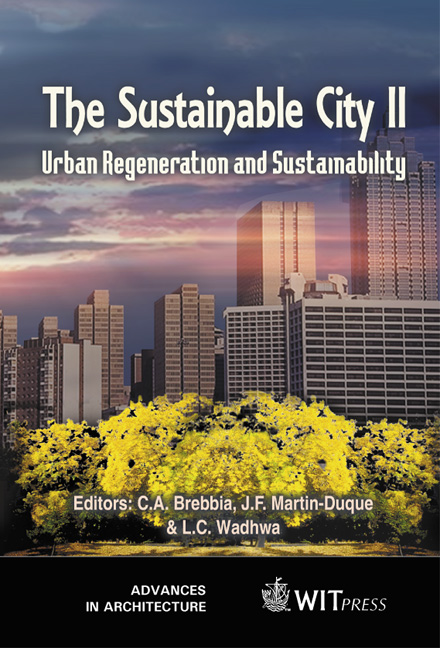Eco-tech Cities: Smart Metabolism For A Green Urbanism
Price
Free (open access)
Transaction
Volume
54
Pages
Published
2002
Size
634 kb
Paper DOI
10.2495/URS020081
Copyright
WIT Press
Author(s)
D Bogunovich
Abstract
The paper addresses the issue of environmental sustainability of cities and proposes that Urban Design must simultaneously heed Ecology and deploy Technology. To achieve this, Urban Metabolism must become the central paradigm of both assessing urban unsustainability of the present cities and of seeking a model of the sustainable city of the future. The paradigm enables us to conceive of cities as dynamic negentropic systems whose sustainability can be enhanced by better organising their flows of environmental information. Ecologically inspired schools of urbanism have been with us for a long time but have tended to ignore techno- logical solutions. Our reality is that human habitat is ever more artificial and that technology is all around us. Urbanists should embrace new technologies. A mix of clean environmental technologies (ET) with information (IT) and communication technologies (CT) is a key part of the solution. Information-rich, knowledge-intensive solutions are critical in enhancing the eco-efficiency of the city. An ecologically sound urbanism of the future will be both ‘green’ and ‘smart’. Presently, the twin trends of ‘ecologisation of urban technology’ and ‘technologisation of urban ecology’ are contradictory and marginal. If correct political and consumer choices are made in the near future, the trends will converge and become mainstream. The anticipated intellectual, cultural, and economic shifts suggests the emergence a new design paradigm for all professions involved in the production of the physical urban environment - planners, engineers, architects, landscape architects. This paradigm - ‘eco-tech design’ - will set us free from the binary of the Natural vs the Artificial. 1 Introduction: aim and assumptions The aim of this paper is to contribute to the contemporary discussion of ‘urban (un) sustainability’ by suggesting that one of the critical obstacles to making our
Keywords





